Introduction Of OEM Sunglasses
For eyewear brands marketing sunglasses globally, outsourcing production to specialized manufacturing partners lowers costs while maintaining quality control. One prevalent arrangement sees brands partnering with Original Equipment Manufacturers (OEMs), who design and produce product lines on their behalf.
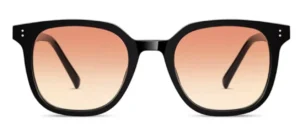
However, many consumers remain unfamiliar with the complex collaboration involved in OEM sunglasses production. This extensive article aims to demystify the OEM model and eyewear manufacturing process. It explores the origins and advantages of outsourcing, strategic partnership dynamics, and how the model can help with designing sunglasses and how to create your own sunglasses brand.
Understanding these production capacities is valuable for brands navigating globalized development and newcomers choosing appropriate sunglasses manufacturers. The information sheds light on how affordable luxury reaches worldwide consumers through efficient large-scale collaborations.
Origins of Outsourcing(OEM)
The genesis of OEM outsourcing arose from post-World War II cost optimization needs. As global trade expanded, pioneering brands like Ray-Ban and Oakley identified Asia as having massive labor cost advantages for transferring essential production overseas.
Taiwan, South Korea, and eventually China emerged as premier sourcing destinations due to their large-scale manufacturing infrastructure and skilled workforces. Low wages allowed brands to focus on higher-value activities like design, marketing, and distribution while outsourcing commodity production tasks.

Initially producing simple metal and plastic frames, offshore factories gradually acquired injection molding, CNC machining, and complex assembly skills through imported machinery and technical mentorship. Their expanding operational scale captured sizeable outsourcing contracts from global brands.
Over time, collaborative production models evolved beyond simple subcontracting. Overseas clusters specialized into vertically integrated hubs serving entire product categories through all stages from prototyping to fulfillment. This reduced risks for brands through supply chain consolidation.
Today’s Dynamic OEM Partnerships
Most major sunglasses brands now maintain long-term OEM partners who design and produce seasonal collections affordably at massive scales. The collaborative relationship entails intricate coordination across planning, development, certification, and shipping logistics.
Brands provide OEM R&D teams with concept renderings, engineering specifications, target costs, and quality metrics. OEMs focus on prototype iterations until they receive mass production approvals. Throughout, trust remains critical due to OEM operational oversight requiring transparency.

Although OEMs handle manufacturing logistics, brands retain control over intellectual property rights, marketing strategies, and pricing determinations. Both parties leverage comparative advantages synergistically offering customers exceptional value from dedicated specialization.
Strategic outsourcing optimizes global efficiency by centralizing cutting-edge production technologies, absorbing supply chain complexities, and achieving affordable luxury accessibility through scalable operations when choosing qualified custom sunglasses manufacturers.
OEM Development Ecosystem
Advanced OEM production clusters maintain self-contained operations reducing dependencies. They integrate precision injection molding lines with Tool and die departments, assembly stations, quality control labs, and fulfillment centers under centralized management with first-tier supplier access.
State-of-the-art prototyping centers enable rapid virtual renderings through physical sampling iterations improving designing sunglasses. Supplier parks colocate ancillary industries producing specialized alloys or lenses for seamless material handoffs. Industrial clusters promote cooperative innovation through shared R&D consortia.
Connective technologies facilitate embedded real-time production oversight for clients. Blockchain platforms authenticate sustainability compliance while automated traceability safeguards intellectual property protection according to critical for how to create your own sunglasses brand. Management systems assure perpetual excellence through continuous self-evaluation and worker re-skilling programs.
Strategic OEM Partnership Dynamics
Durable OEM-brand relationships require open communication and mutual understanding. Regular debriefs identify wins and shortfalls informing roadmaps collaboratively optimizing all stages. Early involvement preempts deadline issues critical for mass customization demands.

Development aligns manufacturing schedules proactively avoiding bottlenecks impacting affordability or fit-for-purpose assurances. Success comes through seeing disputes resolved via cooperation rather than conflict maintaining brand equity foundationally.
Selecting reputable OEMs able to safeguard proprietary methodologies fosters long-term trust laying the foundation for risk-mitigated scaling supported by globalized connectivity when first navigating overseas ventures. Efforts maximize experiences fueling innovation together.
Conclusion Of OEM Sunglasses
Strategic outsourcing optimizes efficiencies aligning specialized competencies globally. The collaborative OEM model cultivates synergistic learning while fortifying quality production supporting lifestyle eyewear accessibility worldwide. With attentiveness, continuous partnerships uplift brands, factories, and wearers through shared stewardship of this enriching industry driving its betterment.
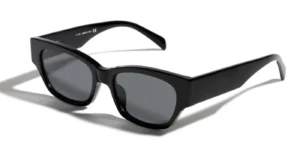
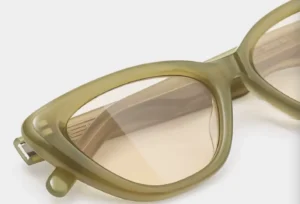
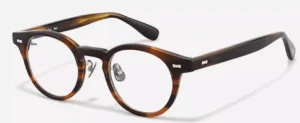
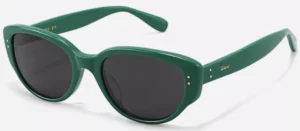
1 thought on “What is OEM Sunglasses? Demystifying the Eyewear Manufacturing Model”
Hello, my dear one, I would like to express my admiration for this exceptionally well-written post that encompasses nearly all pertinent information. I eagerly await further postings of the same caliber.